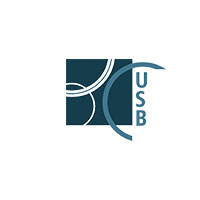Dates and topics in WS 2023 / 24
Automatically generated subtitles for the videos are available in German and English. They work best in the Chrome browser or Edge.
09.11.2023: 33 minutes for AI-generated content recognition
This short talk explores the question of what is behind AI and how to recognise AI-generated content. Learn if and how you can distinguish between human-generated and machine-generated content and which techniques will save you from the pitfalls of AI deception.
Presentation on the Coffee Lecture "AI generated content regnognition" (German, PDF 2.65 MB) >>
Recognise AI-generated content
Your contact person
-

Claudia Piesche IT-Dienste
-
piesche
ub.uni-koeln.de
- Phone
- +49 221 470-2435
16.11.2023: 33 minutes for coding with AI
The market now offers a variety of virtual assistants that are designed to generate, explain, translate into other programming languages or modify codes. In this presentation, we will take a look at some of these models and try them out using practical examples.
Presentation on the Coffee Lecture "coding with AI" (German, PDF, 1.44 MB) >>
Coden mit KI
Your contact person
-

Dr. Denis Arnold Benutzung
-
arnold
ub.uni-koeln.de
23.11.2023: 33 minutes for research literature and AI
When enthusiastically trying out Chat GPT for the first time, many users stumbled across "hallucinations", and some may have wondered about well-formed but equally hallucinated references. Since then, more and more tools and set-ups have emerged that support, change and simplify working with specialised literature. In this Coffee Lecture, some of these will be presented to illustrate the range of use cases in which AI tools can be utilised.
Presentation on the Coffee Lecture "Research literature and KI" (German, PDF, 1.8 MB) >>
Fachlitertur und KI
Your contact person
-

Dr. Gabriele Schwiertz Benutzung
-
schwiertz
ub.uni-koeln.de
30.11.2023: 33 minutes for enriching an LLM with specialised knowledge in local operations
When answering specialized questions (such as about specific, in-depth areas of expertise or even about internal information not available to the public), LLMs often produce vague and contradictory answers or even fall into hallucination. The reason for this is that LLMs do not have semantic knowledge in the true sense, but only predict words. Their ability to answer queries correctly depends on the coverage of the topic in question - and its specific terminology - in the underlying training data. To mitigate this weakness, LLM can be extended to include domain-specific knowledge beyond the training data itself. In the Coffee Lecture, we will present such an extension - and we will do so locally, so that no proprietary or confidential data has to leave one's IT ecosystem.
Anreicherung eines LLM mit Spezialwissen im lokalen Betrieb
Your contact person
-

Dr. Christian Lang Wissenschaftlicher Mitarbeiter im Projekt Grammatische Terminologie Leibniz-Institut für Deutsche Sprache (Mannheim)
-
lang
ids-mannheim.de
- Phone
- +49 621 1581 474
07.12.2023: 33 Minutes for Artificial Intelligence on Demand: The OpenAI API
In the era of digital transformation, artificial intelligence (AI) and machine learning are no longer visions of the future, but a reality. The integration of AI functions into applications and services opens up a world of new possibilities. This Coffee Lecture is dedicated to a popular tool in this field: the API of OpenAI, known for exciting models like ChatGPT and DALL-E.
The 22-minute lecture will provide a brief introduction to the OpenAI API and will also include a presentation of show cases and conclude with a look at possible use cases for libraries.
Presentation on the Coffee Lecture "Die OpenAI API" (German, PDF, 2.3 MB) >>
Die OpenAI API
Your contact persons
-

Mark Eschweiler IT-Dienste
-
eschweiler
ub.uni-koeln.de
- Phone
- +49 151 155 285 05
14.12.2023: 33 minutes for AI in teaching
At the latest since the publication of OpenAI's ChatGPT in November 2022, (generative) artificial intelligence (AI) has arrived in the educational discourse. While the debate initially centred mainly on concerns in connection with examinations, the focus is now increasingly on educational topics and specific didactic issues, for example. In our article, we therefore look at generative AI, its role at university and specific application scenarios from four perspectives and against the backdrop of post-digital education: Learning with AI, teaching with AI, learning AI and working and researching with AI.
Presentation on the Coffee Lecture "AI in teaching" (German, PDF, 4.5 MB) >>
KI in der Lehre
Your contact person(s)
-

Ingo Kleiber Senior-Experte Digitale Bildung & Educational Technology Prorektorat für Lehre und Studium (Universität zu Köln)
-
ingo.kleiber
uni-koeln.de
- Phone
- +49 221 470 7266
-

Kathrin Andree Referentin "Bildung der Zukunft" Prorektorat für Lehre und Studium (Universität zu Köln)
-
kathrin.andree
uni-koeln.de
- Phone
- +49 221 470 76057
11.01.2024: 33 minutes for AI-supported presentation creation
Artificial intelligence (AI) uses algorithms and machine learning to support users in various aspects of presentation creation. It can automatically generate layouts and designs for slides, analyze content and make structuring suggestions to arrange information in a logical and understandable way. When it comes to data visualization, AI helps to convert complex data into easy-to-understand graphics and diagrams. Suitable display formats are automatically suggested and created. AI tools can also integrate interactive elements such as surveys or quizzes into presentations. Based on previous presentations, the AI learns the user's preferences as part of the personalization process and makes individual suggestions for future presentations. In this Coffee Lecture, the latest AI tools and practical use cases will be presented and current development trends will be discussed. Join us and stay up to date with the latest technological developments in academic and professional presentation creation.
Presentation on the Coffee Lecture "AI-supported presentation creation" (German, PDF, 3 MB) >>
Recognise AI-generated content
Your contact person
-

Prof. Dr. Beate Gleitsmann Professorin für Allgemeine Betriebswirtschaftslehre (Schwerpunkte „Marktforschung“ und „Marketing“) Rheinische Fachhochschule Köln
18.01.2024: 33 minutes for AI and scientific work in teaching
The academic writing process, which has become a focus of discussion due to text-generating AI such as ChatGPT, offers a variety of starting points for entering into critical discussion with students about both the writing process and AI tools. This article therefore discusses from a (writing) didactic perspective how the meaningful and critical use of AI tools in academic writing processes can be practised and reflected upon in teaching-learning contexts.
Presentation on the Coffee Lecture "AI and scientific work in teaching" (German, PDF, 620 KB) >>
AI and scientific work in teaching
Your contact person
-

Miriam Gertzen Wissenschaftliche Mitarbeiterin Zentrum für Hochschuldidaktik (Universität zu Köln)
-
mgertzen
uni-koeln.de
- Phone
- +49221 470-2003
25.01.2024: 33 minutes for AI makes everything new? How ChatGPT & Co. should (not) change science
The transformative potential of AI tools is enormous, including for science. But this transformation also carries risks if we don't steer it in the right direction. What can go wrong, how can we prevent it and at the same time harness the potential of AI tools for science? That's what the Coffee Lecture is all about!
Alles neu macht KI
Your contact person
-

Jun. Prof. Amrei Bahr Schwerpunkte: Angewandte Ethik, Artefaktphilosophie, Ästhetik, Technikphilosophie Forschungsbereich: Philosophie (Universität Stuttgart)
01.02.2024: 33 minutes for AI-generated images to visualise research
The art in science: discover the power of artificial intelligence in creating visual masterpieces to illustrate research findings. Dive with us into the world of AI-generated images and learn how they can shape the future of research and communication.
KI-Unterstützung zur Visualisierung der Forschung
Your contact person
-

Dr. Gabriele Schwiertz Benutzung
-
schwiertz
ub.uni-koeln.de
-

Claudia Piesche IT-Dienste
-
piesche
ub.uni-koeln.de
- Phone
- +49 221 470-2435
